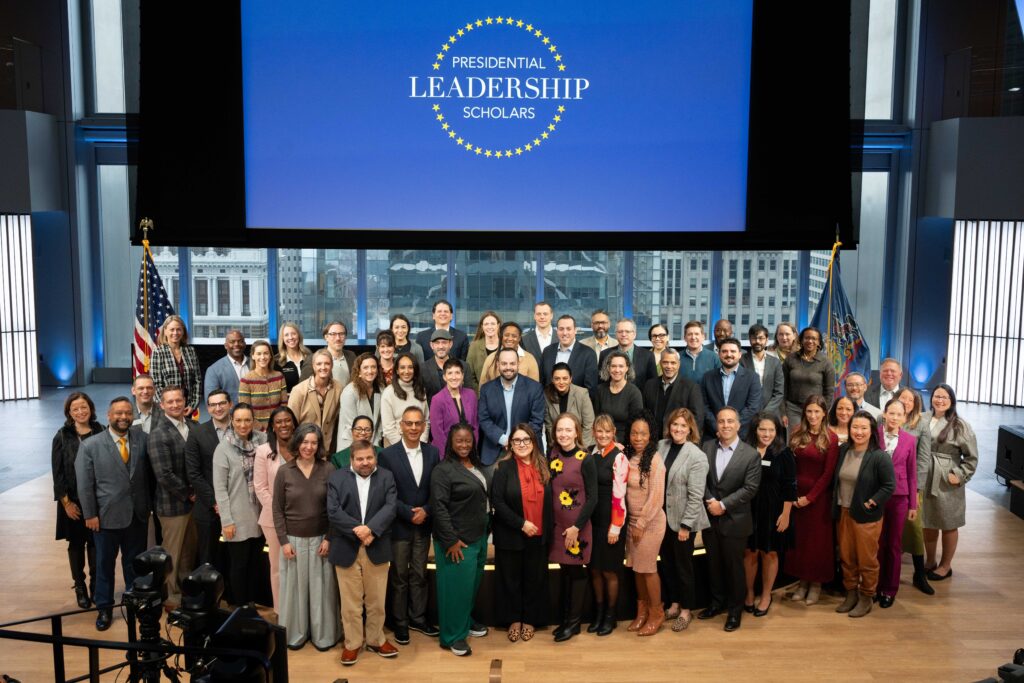In less than a year, the Presidential Leadership Scholars program went from idea to launch with President George W. Bush and President Bill Clinton on stage in Washington, D.C. The joint initiative between their presidential centers and those of President George H.W. Bush and President Lyndon B. Johnson stands today as an example of bipartisan leadership.
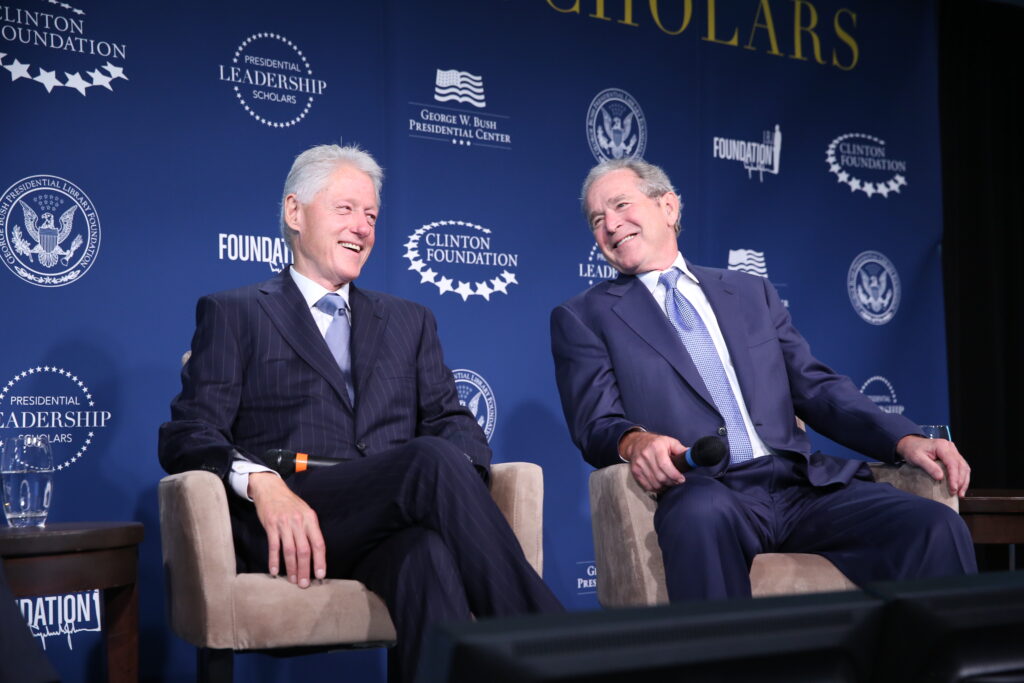
Since 2015, the program has brought together a broad range of leaders from across our nation – from business executives to health care professionals to public servants – who are committed to bridging divides and tackling the challenges critical to the future of our country and world. In January, the program convened its 10th annual class made up of 57 changemakers.
Stephanie Streett, Executive Director of the Clinton Foundation, and Kristin King, Chief Operating Officer at the George W. Bush Institute and Vice President of the George W. Bush Presidential Center, who worked with the presidents and presidential centers to establish the program, shared their insights into its creation during the 10th class’s first gathering in January in Philadelphia.
President Bush and President Clinton share a special relationship that goes beyond politics, built on trust and mutual respect, they said. Now, the program the presidents created over a decade ago continues to encourage leaders to build relationships based on those same values.
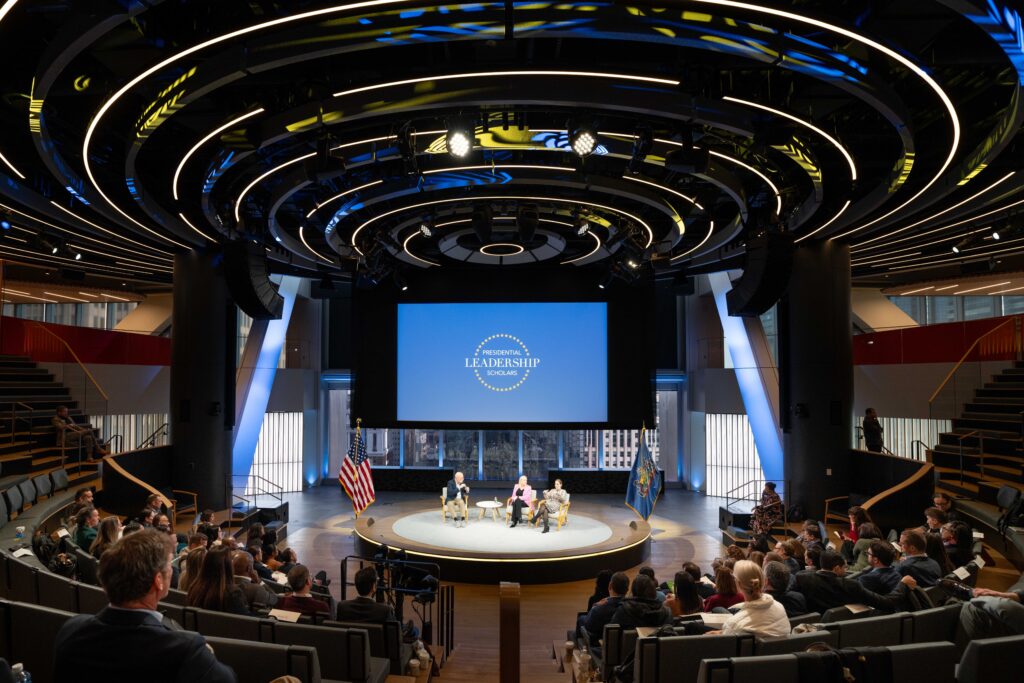
Over the next six months, the Class of 2025 will have the unique opportunity to delve into a first-of-its-kind curriculum built on four leadership pillars: vision and communication, decision making, influence and persuasion, and strategic partnerships.
During Module One, Scholars began to build meaningful relationships with one another. From uncovering their similarities to discussing their fundamental values, the class left Philadelphia with a better understanding of each other and the program.
Todd Connor, 2016 PLS alum and faculty member, led the class through an exercise on how to make a community out of the strangers surrounding them. He said shared purpose, vulnerability, and grace were essential. And the Scholars listened. They opened up and connected with one another, and – after four days together – started building a community.
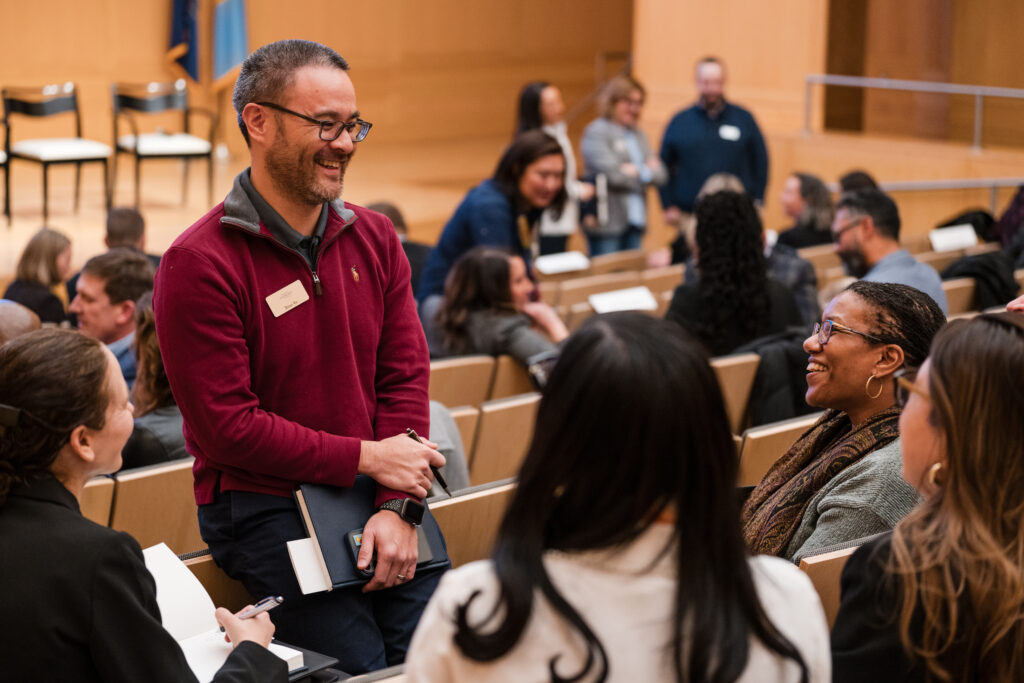
“What I didn’t expect was just how quickly this group would become a family,” 2025 Scholar Stephiney Foley said.
“We arrived with our own lived experiences, deeply rooted convictions, and diverse perspectives and yet, through shared stories and radical vulnerability, we uncovered a powerful commonality – a shared commitment to creating a lasting, positive impact on the world,” Foley said. “It didn’t matter whether we came from nonprofit, government, military, corporate, or entrepreneurial backgrounds – we were all driven by the same unshakable force: making a difference.”
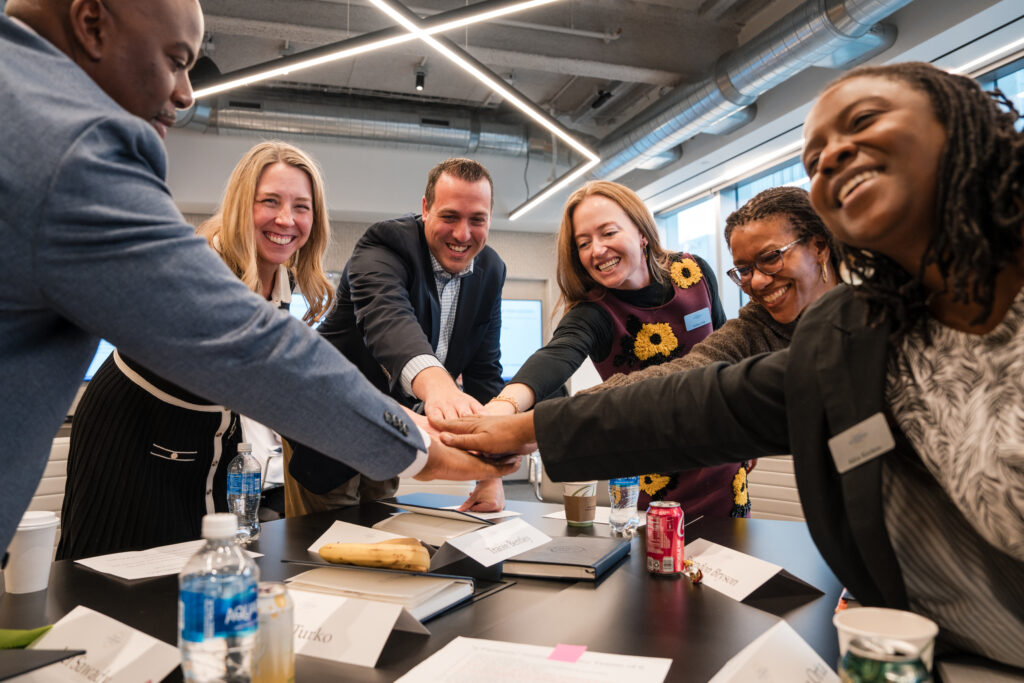
Scholars also learned about the PLS approach to leadership through engaging faculty sessions:
- Keith Hennessey, David Rubenstein Fellow at the Bush Institute and former Director of the National Economic Council for President Bush, led the class through an exercise aimed at understanding different perspectives.
- Michael O’Leary, Senior Associate Dean at Georgetown University’s McDonough School of Business, taught why reflection is a key leadership practice and how to lead high-performing teams.
- Nicole Bibbins Sedaca, the Kelly and David Pfeil Fellow at the Bush Institute, shared how identity impacts leadership.
Paule Joseph, a member of the Class of 2025, said that the beginning of her PLS journey “stretched me beyond my comfort zone.”
“I walked away from this first module not just with new insights, but with new perspectives on how I lead, how I learn, and how I serve,” she said.
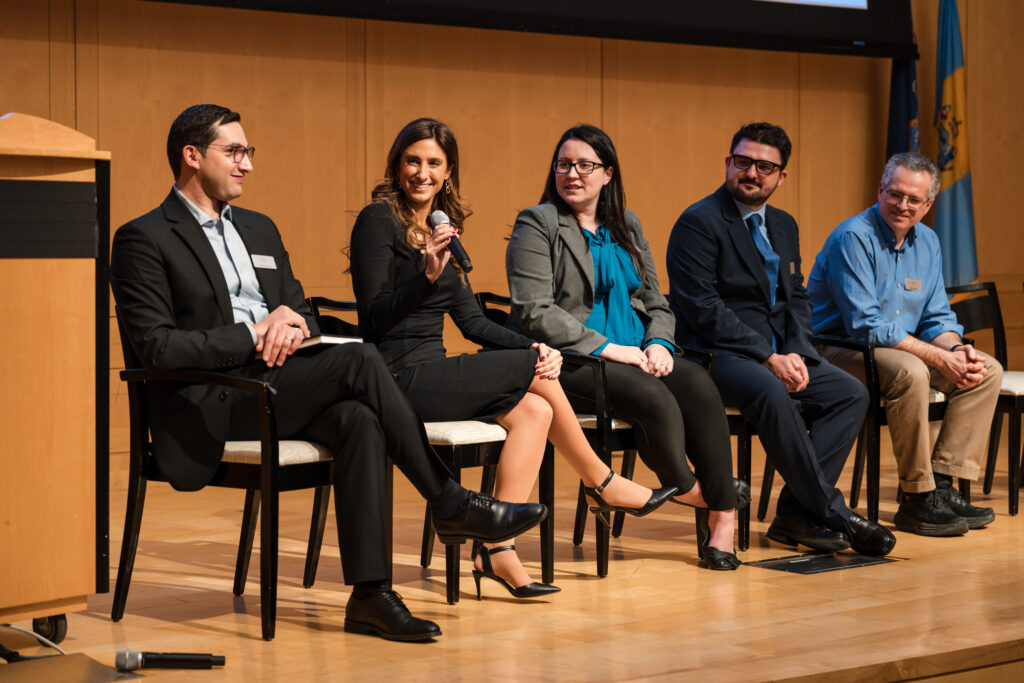
Mike Hemphill, Co-Director of the PLS Program, closed out the Scholars’ time in Philadelphia with an exercise focused on building bridges. The class gained insight into how to connect with one another across differences.
“If I had to sum up the biggest lesson from the module, it would be this: Political party is a code word to keep us in our place,” 2025 Scholar Kate Morton said.
“Partisanship shouldn’t limit leaders,” she said. “True progress happens when we stay openminded, focus on what we’re passionate about, and work together. Let’s lead beyond labels. Let’s build bridges. Let’s create real impact.”
